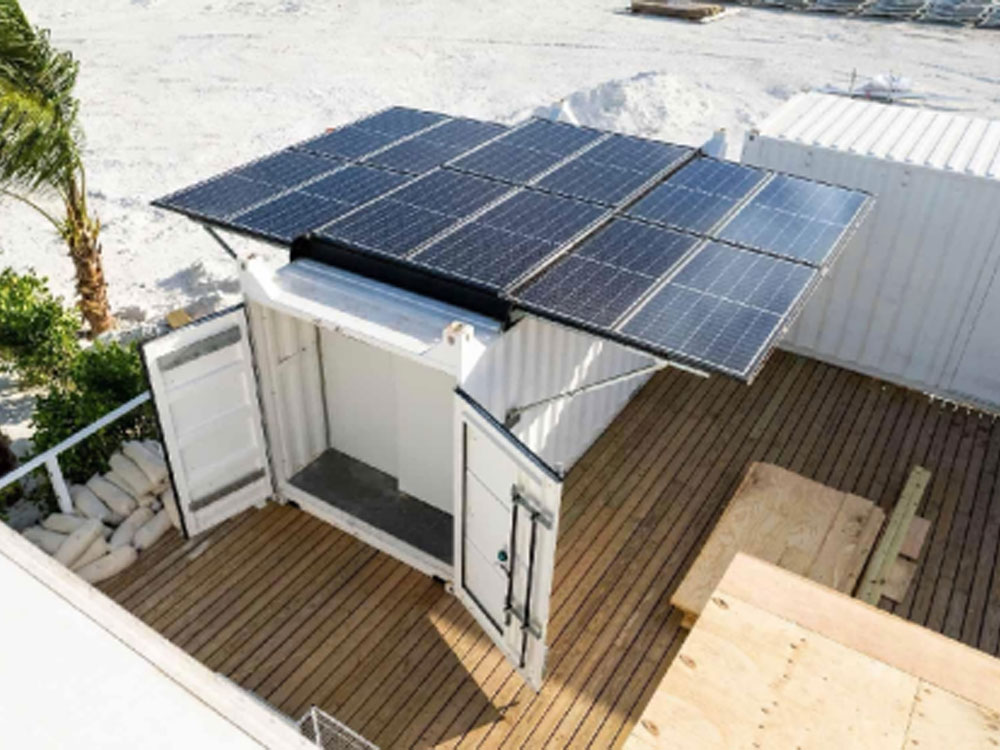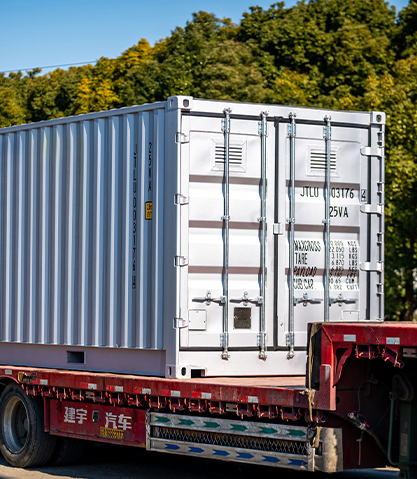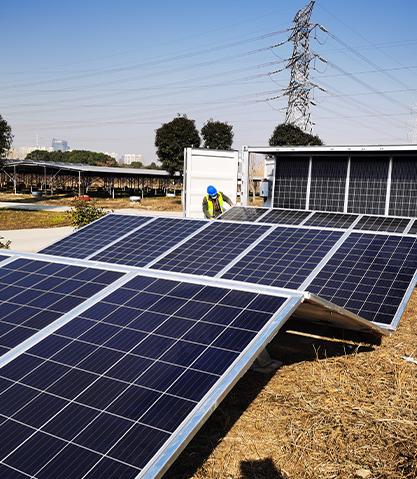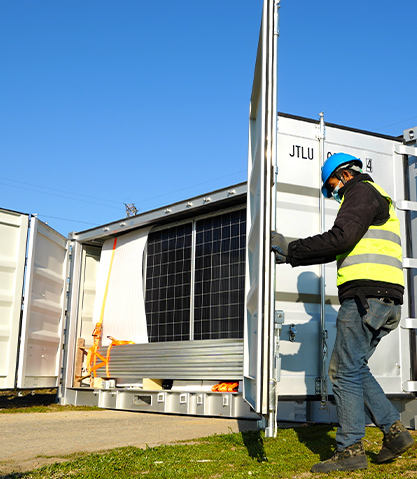As the world increasingly shifts towards renewable energy, innovative solutions are emerging to meet the growing demand for clean, sustainable power sources. One such solution that has garnered attention in recent years is the solar power container. These self-contained, portable units harness the power of the sun to generate electricity, offering a range of benefits from energy independence to off-grid power solutions. In this article, we will explore what solar power containers are, how they work, and the advantages they offer for both residential and commercial use.
Content
What is a Solar Power Container?
A solar power container is a modular and portable unit designed to provide electrical power through solar energy. Typically built inside a shipping container, these systems are equipped with solar panels, battery storage, and an inverter to convert DC electricity into usable AC power. The container is fully integrated with all the necessary components for energy production and storage, making it a standalone unit that can be deployed anywhere sunlight is available.
These solar power containers can be used in a variety of applications, including remote locations, disaster relief efforts, military operations, industrial operations, and even off-grid residential setups. The compact design of these units, combined with the ability to generate and store solar energy, makes them ideal for locations where traditional power grids are unavailable or impractical.
How Do Solar Power Containers Work?
Solar power containers operate based on a straightforward process of converting sunlight into electrical energy:
-
Solar Panels: The container is equipped with photovoltaic (PV) solar panels, which capture sunlight and convert it into direct current (DC) electricity.
-
Battery Storage: This DC electricity is stored in high-capacity batteries integrated into the system. The storage capacity allows the system to provide power even when the sun isn’t shining, such as during the night or on cloudy days.
-
Inverter: An inverter is used to convert the stored DC electricity into alternating current (AC), which is the type of electricity used by most appliances and electrical systems.
-
Power Distribution: Once the energy has been converted to AC, it can be distributed to power equipment, buildings, or other devices that require electricity.
This self-sustaining system is fully integrated into a single container, making it easy to deploy and use in a variety of locations. The size and specifications of the solar power container can be tailored based on the energy needs of the user, whether it’s for a small home or a large industrial project.

Advantages of Solar Power Containers
-
Energy Independence and Sustainability
One of the most significant advantages of solar power containers is their ability to provide energy independence. These containers can operate completely off-grid, which makes them an ideal solution for locations that are difficult to reach or lack access to reliable electricity. By harnessing solar energy, users reduce their dependence on fossil fuels and contribute to a more sustainable energy future. -
Portability and Flexibility
Solar power containers are designed to be mobile. They can be easily transported and deployed in various locations, which is particularly beneficial for industries or sectors that require temporary power solutions. Whether it’s a construction site, remote mining operation, or emergency response, the portability of these containers ensures that power is available where it’s needed most. -
Cost Savings in the Long Term
While the initial investment in a solar power container may be higher than traditional energy systems, the long-term savings are significant. Solar energy is a free, renewable resource, and once the system is set up, there are very few operational costs. Users can avoid the costs associated with traditional fuel sources or grid electricity, making it a cost-effective option in the long run. -
Reliability and Low Maintenance
Solar power containers are known for their reliability. Once installed, these systems require minimal maintenance. The solar panels themselves have long lifespans, often lasting 25 years or more with proper care. Regular checks of the batteries and inverter ensure that the system remains operational, but overall, solar power containers are much easier to maintain compared to traditional power sources like diesel generators. -
Environmental Impact
By utilizing renewable solar energy, these containers have a minimal environmental impact. They do not produce harmful emissions or contribute to air pollution, making them a cleaner, greener alternative to fossil fuel-based power generation. Using solar power helps reduce the carbon footprint, contributing to the fight against climate change. -
Customizable Solutions for Different Needs
Solar power containers can be tailored to meet specific energy needs. Whether for small residential applications, large industrial operations, or emergency power needs, these systems can be scaled up or down to provide the necessary energy output. Users can select containers with different solar panel capacities, battery storage options, and inverters to meet their precise requirements.
Applications of Solar Power Containers
-
Off-Grid Living
For individuals or communities living in remote areas, solar power containers provide an affordable and sustainable way to power homes, schools, and businesses without relying on traditional power grids. These units can power essential devices like lighting, refrigeration, and communications equipment, improving the quality of life in off-grid environments. -
Disaster Relief and Emergency Response
In the aftermath of natural disasters, access to electricity is often one of the most urgent needs. Solar power containers can be rapidly deployed to disaster-stricken areas to provide emergency power for medical facilities, shelters, and rescue operations. These containers provide a reliable and renewable energy source when other power options are unavailable. -
Military and Defense Operations
For military personnel working in remote or hostile environments, solar power containers offer a portable, renewable energy solution that reduces the need for fuel convoys and minimizes exposure to supply chain risks. These containers can power communication systems, water purification units, and other critical equipment in the field. -
Industrial and Commercial Use
Solar power containers can also be used in industries like mining, construction, and agriculture to power equipment and machinery in locations where grid electricity is unavailable. The portability of the containers allows for quick deployment and easy relocation as work sites change. -
Event and Festival Power Supply
For large outdoor events such as festivals, concerts, or conferences, solar power containers offer a sustainable and cost-effective way to supply power for lighting, sound systems, and food vendors. They reduce the reliance on traditional generators, which are often noisy and polluting.
Conclusion
Solar power containers represent a cutting-edge solution to meet the growing demand for renewable energy and off-grid power. With their ability to generate, store, and distribute solar energy in a compact, mobile unit, they offer a sustainable, cost-effective, and reliable alternative to traditional energy sources. Whether for residential use, industrial applications, or emergency power, solar power containers are helping to drive the transition towards a cleaner, more independent energy future. As technology advances and the demand for renewable energy grows, the role of solar power containers in global energy solutions is poised to become even more significant.

 English
English 中文简体
中文简体 عربى
عربى



